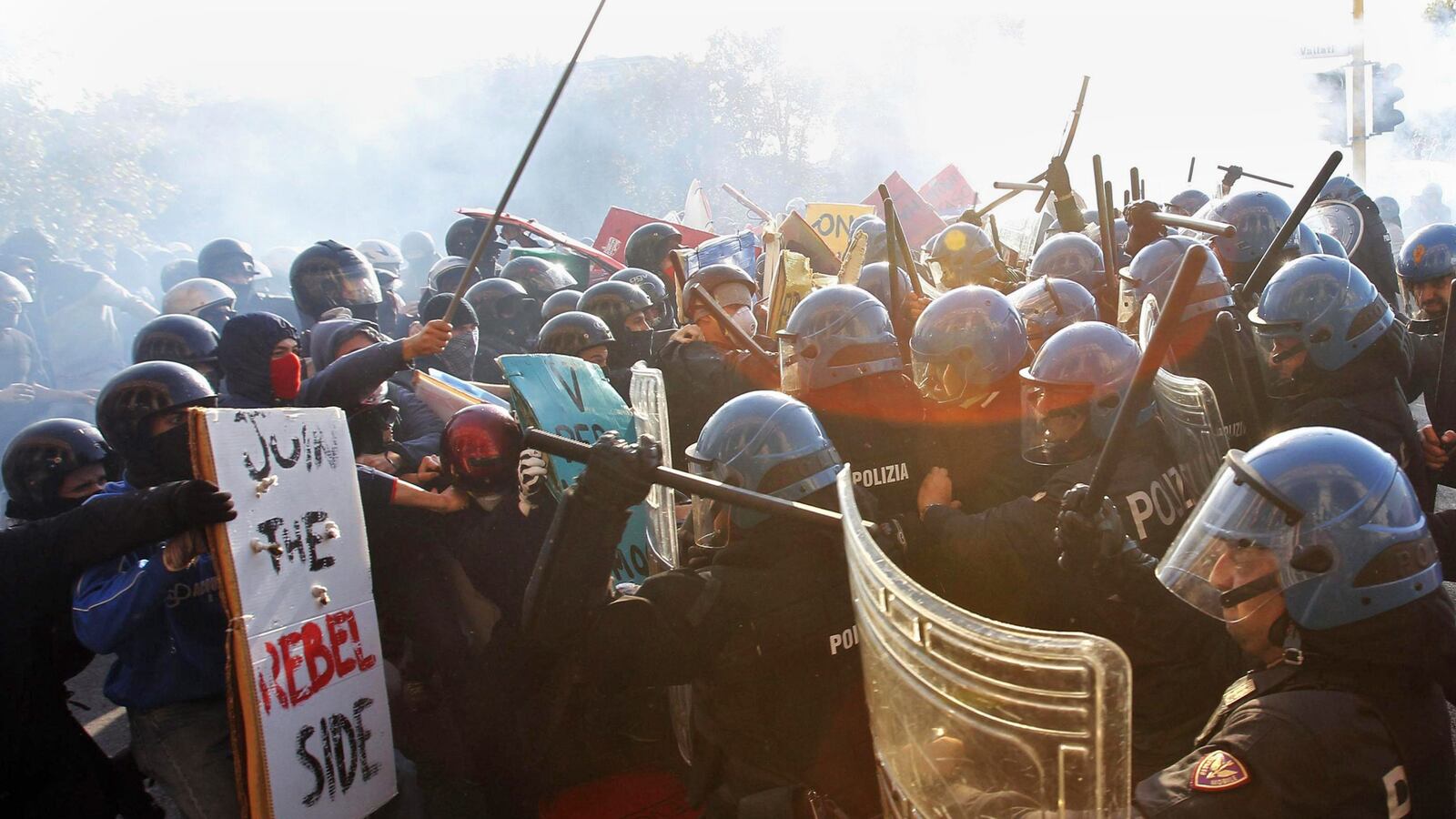Should there be any doubt about how residents of Europe’s debt-stricken nations really feel about austerity, violent protests in Spain, Greece, Portugal, and Italy on Wednesday should serve as a poignant reminder. In all, 23 European nations took part in the so-called “European Day of Action and Solidarity” organized by the European Trade Union Confederation. Not surprisingly, protesters in the countries suffering from the deepest austerity cuts were the most violent. “Austerity is a total dead end, and must be abandoned,” said the website where the group’s call for action was posted. “Social protection and wages can no longer be sacrificed.”

Across Italy, an estimated 300,000 demonstrators took to the streets in 100 cities. Protesters broke windows and blocked the central train station in Naples. They set fires in Brescia and charged at police in Bologna. In Turin, 20 delinquents seriously injured a police officer with baseball bats, fracturing his skull. In Florence, angry mobs plastered bank windows with rotten eggs and defaced the normally pristine city center with profane graffiti. In Pisa, a group of angry protesters briefly occupied the historic Leaning Tower of Pisa, hanging a sign that read “Rise Up. We are not paying for your Euro crisis.”
In Italy’s larger cities, chaos ensued when anarchists infiltrated the peaceful protests, quickly turning the volatile scene into dangerous urban warfare, snarling traffic and trapping unsuspecting residents between riot police lines and angry mobs. In Milan, five police officers were seriously injured after engaging in fierce street battles with student protesters who were demonstrating against education cuts.
In Rome, glass shards littered busy thoroughfares and a thick cloud of toxic smoke from paper bombs and tear gas hung over the city center as thousands of uninhibited protesters—many wearing helmets and gas masks—threw glass bottles and broken cobblestones at riot police. At one point, police used an armored jeep to disperse the crowds before trapping a handful of violent protesters on a bridge over the dangerously flooded Tiber River. The students flung their helmets, bottles, and Molotov cocktails into the water before finally giving up. More than a dozen police officers were injured in Rome and more than 60 protesters were detained. Across the country, police were accused of using unnecessary violence against protesters, calling to mind the country’s unfortunate history in which a protester was shot to death in Genova, during the 2001 G8 summit, when he threw a gas canister at a police officer.
The situation was also tense in Madrid, Spain, where 34 people were injured and 110 protesters were arrested after security forces used rubber bullets and batons to keep crowds at bay. Three of the most violent protesters were found with paraphernalia to make potentially dangerous explosives, but were detained before they had time to assemble and detonate the materials. Protesters used superglue to jam up cash points and affixed coins to keypads, rendering them unusable. In Portugal, where German Chancellor Angela Merkel just paid a state visit, demonstrators blamed the richer northern European nations for their personal pain and economic suffering.
Only in Greece—where demonstrators were undoubtedly exhausted from last week’s 48-hour austerity protest—did the day remain relatively calm. There, some 10,000 people took to the streets with signs depicting a middle-aged woman carrying a sign bearing “Dear God, I’m afraid of starving.”
The violence on Europe’s streets was a backdrop to transportation and general strikes and walkouts that have crippled travel across the continent. Even in Brussels, the governing seat of the European Union, airports were closed and trains were delayed, but protests in Europe’s northern regions were mostly symbolic. In the southern regions, where years of corruption and government misspending have inarguably contributed to the crisis for the current generation, the anti-austerity message was loud and clear, but few believe it will have any impact on governments as they move ahead with deeper cuts to balance budgets. “We will of course consider the arguments, but we must nevertheless do what is necessary,” said German leader Merkel in response to Wednesday’s protests.
European Trade Union Confederation secretary designate Frances O'Grady regretted the violence, but called the movement of solidarity a success. “Those in the corridors of power in Brussels and Frankfurt need to understand this—that if ordinary European workers feel that the European Union is about little more than cuts, open markets, and privatization, then the European project will collapse just as surely as night follows day.”






